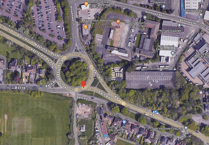His Majesty’s Inspectorate of Constabulary and Fire and Rescue Services (HMICFRS) has today, Friday 24 November, published the findings of its latest assessment of how well we protect children.
Between 24 July and 4 August this year, HMICFRS inspectors reviewed a total of 69 cases in which children were identified as being vulnerable.
In their subsequent report, the inspectors recognised child protection is a priority for our senior leadership team and as an organisation we are committed to improving services for children.
They praised our effective contribution to multi-agency work, saying officers and staff had developed strong professional relationships with safeguarding partners and other safeguarding agencies. The report cited examples of good work including:
- The involvement of specialist child protection teams from the start of investigations, generally leading to a better overall response. This includes the initial safeguarding, investigation and outcomes for the child.
- Officers quickly contacting the children’s social care services emergency duty team about out-of-hours incidents, such as concerns for a child, a child has been taken into police protection, a child is missing, or a child is being detained in custody.
- The commitment of response officers to locating missing children quickly, seeking support from specialist teams when required.
- Specialist investigators and offender managers using arrest and bail conditions to protect children from harm in most cases.
- Officers and staff aren’t always recognising the broader risk to siblings in households or that other children are at risk of harm from perpetrators.
- Officers aren’t always speaking with children and consistently recording the voice of the child.
- The constabulary is over-reliant on children’s social care services in the initial stages of investigations.
- The constabulary has inconsistent methods of making referrals to children's social care services.
- Addressing a national gap in the number of trained detectives and specialist child protection investigators which, linked with increasing demand, is causing delays. We’re focused on training and accrediting more specialist officers within Avon and Somerset, and ensuring that their supervisors are similarly qualified .
- Restructuring our team of offender managers and rolling out further training and guidance to improve our management of sex offenders.
- Tackling factors we have identified which cause delays in the investigation of online child sexual exploitation, such as the specialist forensic examination of digital devices.
However, inspectors also highlighted some areas for improvement, including that:
- Officers and staff aren’t always recognising the broader risk to siblings in households or that other children are at risk of harm from perpetrators.
- Officers aren’t always speaking with children and consistently recording the voice of the child.
- The constabulary is over-reliant on children’s social care services in the initial stages of investigations.
- The constabulary has inconsistent methods of making referrals to children's social care services.
Of the 69 cases reviewed, the child protection practices were deemed good in 17 cases, required improvement in 30 cases and inadequate in 22 cases. Inspectors recognised in their report senior leaders at Avon and Somerset Police had identified and acknowledged there were areas for improvement in the service we provide to children and that we’re acting to address these, describing our response as “positive”.
Remedial action already underway includes:
- Addressing a national gap in the number of trained detectives and specialist child protection investigators which, linked with increasing demand, is causing delays. We’re focused on training and accrediting more specialist officers within Avon and Somerset, and ensuring that their supervisors are similarly qualified .
- Restructuring our team of offender managers and rolling out further training and guidance to improve our management of sex offenders.
- Tackling factors we have identified which cause delays in the investigation of online child sexual exploitation, such as the specialist forensic examination of digital devices.
Assistant Chief Constable Joanne Hall said: “Children are some of the most vulnerable members of our society and everyone who works for Avon and Somerset Police fully recognises the important role we have in ensuring they are safe and protected.
“There is a lot of good work happening across our organisation which is protecting vulnerable children and ensuring they are fully supported and cared for when they most need and this is rightly recognised by HMICFRS.
“For instance, the inspectors praised the ‘high-quality child-centred investigations’ undertaken by our specialist child protection officers and commented on the work of our Child Exploitation Prevention Officer, who provides children across our policing area with age-appropriate training, saying they had ‘received significant positive feedback’.
“The inspectors also recognised we are actively taking steps to avoid criminalising children, that we’re keen to seek options to avoid arresting children and have a ‘culture of challenge’ to make sure children are only detained in custody when necessary.
“We can be proud of the good practice identified by HMICFRS, especially in light of what the inspectors make clear is an increasingly complex and demanding environment.
“To put this into some perspective, last year we investigated more than 6,300 child abuse offences while our dedicated Internet Child Abuse Team saw a 21 per cent year on year increase in their workload.
“However, as the report identified, we accept there are things we can do better to ensure we achieve the best possible outcome for all vulnerable children at risk of abuse, neglect or being exploited.
“In several cases the inspectors found we hadn’t sufficiently spoken to the vulnerable child or recorded their views, while we also need to get better at using the performance-related data we gather to understand the full extent of the threat and risk posed to children as this will help us determine whether our response is better protecting children from harm.
“One of our values is learning and we are committed to implementing all of HMICFRS’s recommendations, ensuring our child protection practices are both consistent and effective.”




